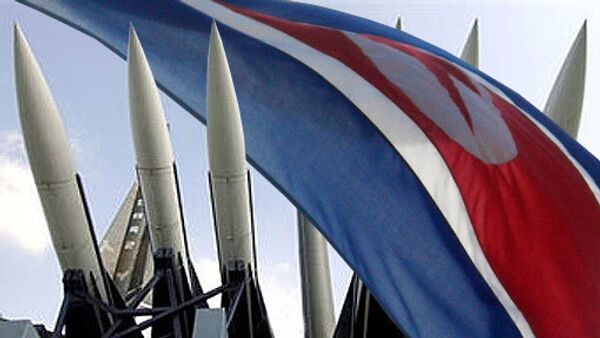Alexander Zhebin, head of the Korean Studies Department at the Institute of the Far East, Russian Academy of Sciences
QUESTION: At today’s meeting, Kim Jong Il told a special representative of Chinese President Hu Jintao that he is ready to resolve the issue of his country’s national nuclear program through negotiation, perhaps even through multilateral talks. How serious is his intention, and what does it mean?
ANSWER: Obviously, his statement about the possibility of multilateral talks is worthy of attention. After the UN Security Council’s recent denunciation of North Korea’s attempt to launch an artificial satellite and the country’s subsequent second nuclear test, Pyongyang rejected an opportunity to resume the six-party talks. In effect, North Korea began insisting on bilateral talks exclusively with the United States on the nuclear issue, as well as on other security issues on the Korean peninsula. Some other parties, for instance, South Korea and China, may join them. This four-party format was tried in the late 1990s.
Japan is actually obstructing the talks, to the obvious disappointment of North Korea. I believe the Japanese may be dismissed from the negotiations team for this reason. North Korea has publicly suggested this more than once.
During this year’s Security Council discussion of the nuclear missile issue on the Korean peninsula, Russia largely shared the American and Japanese position, which upset Pyongyang. Russia may also be excluded from the talks, as was the case in the mid 1990s, when Russia generally supported Western policies towards North Korea, and Pyongyang considered Russian participation useless. However, Russia still hopes to join the discussion.
In any event, Kim Jong Il’s statement about resuming international talks does not necessarily imply resuming the six-party talks.
QUESTION: But do you think his statement is encouraging?
ANSWER: Without a doubt. First, his statement means that North Korea has not renounced the denuclearization of the Korean peninsula, or the previously declared ultimate goal of the Korean negotiating process. Second, it shows that North Korea is willing to be flexible in determining the format of these talks – they could be bilateral or multilateral. In principle, this opens up the opportunity of resuming the six-party talks, but, of course, under certain circumstances.
Six party talks on N. Korea may exclude Russia, Japan - analyst

Subscribe
Alexander Zhebin, head of the Korean Studies Department at the Institute of the Far East, Russian Academy of Sciences
